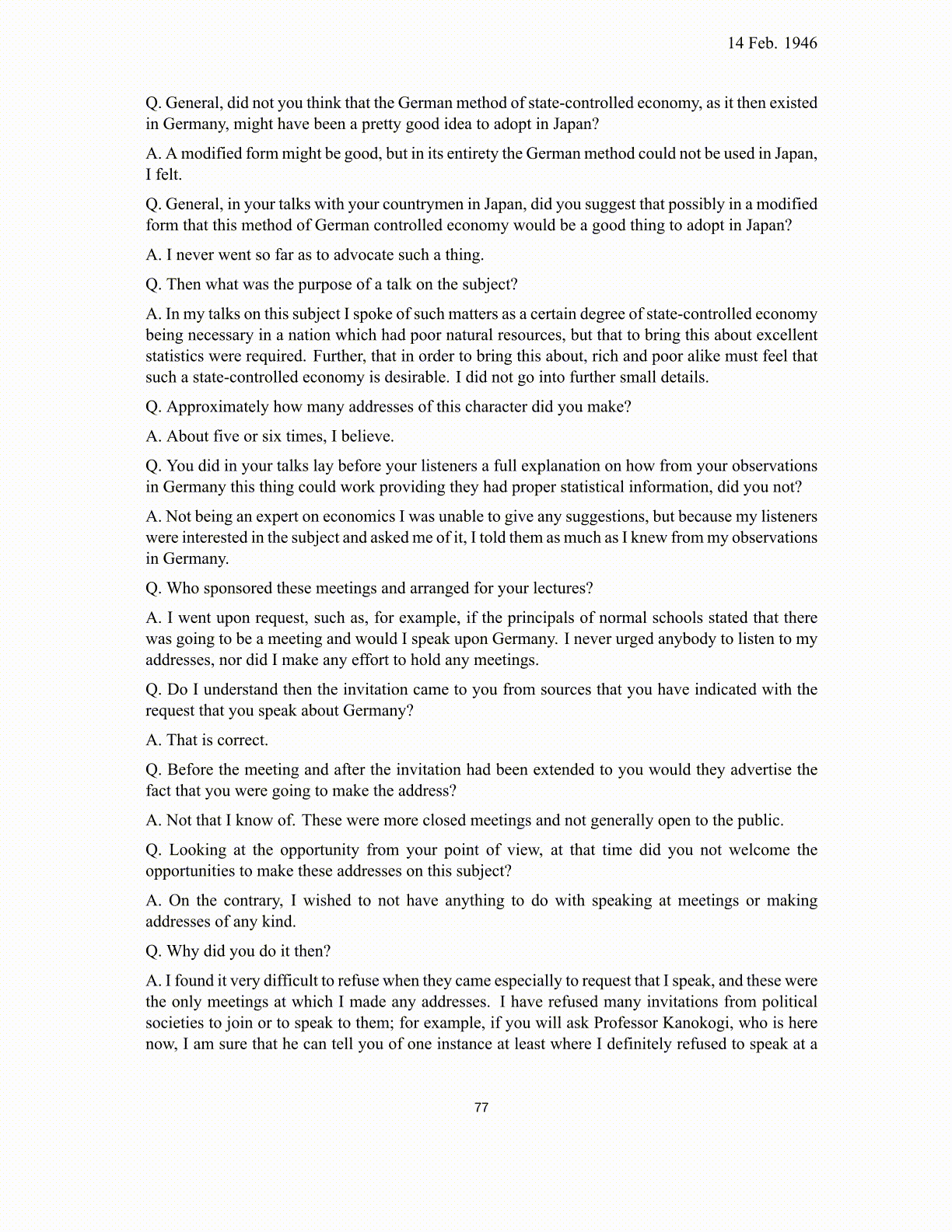
14 Feb. 1946 Q. General, did not you think that the German method of state-controlled economy, as it then existed in Germany, might have been a pretty good idea to adopt in Japan? A. A modified form might be good, but in its entirety the German method could not be used in Japan, I felt. Q. General, in your talks with your countrymen in Japan, did you suggest that possibly in a modified form that this method of German controlled economy would be a good thing to adopt in Japan? A. I never went so far as to advocate such a thing. Q. Then what was the purpose of a talk on the subject? A. In my talks on this subject I spoke of such matters as a certain degree of state-controlled economy being necessary in a nation which had poor natural resources, but that to bring this about excellent statistics were required. Further, that in order to bring this about, rich and poor alike must feel that such a state-controlled economy is desirable. I did not go into further small details. Q. Approximately how many addresses of this character did you make? A. About five or six times, I believe. Q. You did in your talks lay before your listeners a full explanation on how from your observations in Germany this thing could work providing they had proper statistical information, did you not? A. Not being an expert on economics I was unable to give any suggestions, but because my listeners were interested in the subject and asked me of it, I told them as much as I knew from my observations in Germany. Q. Who sponsored these meetings and arranged for your lectures? A. I went upon request, such as, for example, if the principals of normal schools stated that there was going to be a meeting and would I speak upon Germany. I never urged anybody to listen to my addresses, nor did I make any effort to hold any meetings. Q. Do I understand then the invitation came to you from sources that you have indicated with the request that you speak about Germany? A. That is correct. Q. Before the meeting and after the invitation had been extended to you would they advertise the fact that you were going to make the address? A. Not that I know of. These were more closed meetings and not generally open to the public. Q. Looking at the opportunity from your point of view, at that time did you not welcome the opportunities to make these addresses on this subject? A. On the contrary, I wished to not have anything to do with speaking at meetings or making addresses of any kind. Q. Why did you do it then? A. I found it very difficult to refuse when they came especially to request that I speak, and these were the only meetings at which I made any addresses. I have refused many invitations from political societies to join or to speak to them; for example, if you will ask Professor Kanokogi, who is here now, I am sure that he can tell you of one instance at least where I definitely refused to speak at a 77